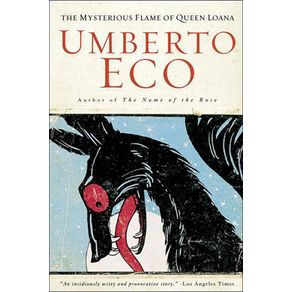The premise of Umberto Eco's The Mysterious Flame of Queen Loana, may strike some readers as laughably unpromising, and others as breathtakingly rich. A sixty-ish Milanese antiquarian bookseller nicknamed Yambo suffers a stroke and loses his memory of everything but the words he has read: poems, scenes from novels, miscellaneous quotations. His wife Paola fills in the bare essentials of his family history, but in order to trigger original memories, Yambo retreats alone to his ancestral home at Solara, a large country house with an improbably intact collection of family papers, books, gramophone records, and photographs. The house is a museum of Yambo's childhood, conventiently empty of people, except of course for one old family servant with a long memory--an apt metaphor for the mind. Yambo submerges himself in these artifacts, rereading almost everything he read as a school boy, blazing a meandering, sometimes misguided, often enchanting trail of words. Flares of recognition do come, like "mysterious flames," but these only signal that Yambo remembers something; they do not return that memory to him. It is like being handed a wrapped package, the contents of which he can only guess.



